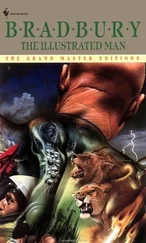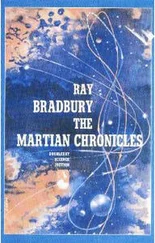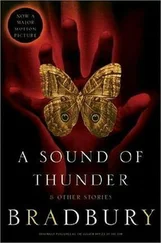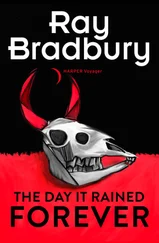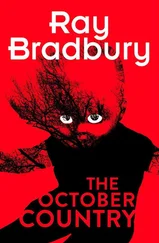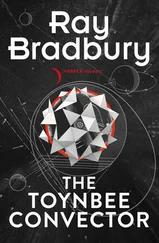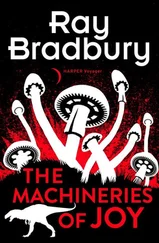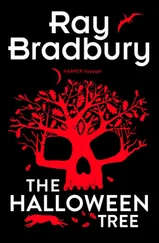Ray Bradbury - The Fog Horn
Здесь есть возможность читать онлайн «Ray Bradbury - The Fog Horn» весь текст электронной книги совершенно бесплатно (целиком полную версию без сокращений). В некоторых случаях можно слушать аудио, скачать через торрент в формате fb2 и присутствует краткое содержание. Жанр: Старинная литература, на английском языке. Описание произведения, (предисловие) а так же отзывы посетителей доступны на портале библиотеки ЛибКат.
- Название:The Fog Horn
- Автор:
- Жанр:
- Год:неизвестен
- ISBN:нет данных
- Рейтинг книги:4 / 5. Голосов: 1
-
Избранное:Добавить в избранное
- Отзывы:
-
Ваша оценка:
- 80
- 1
- 2
- 3
- 4
- 5
The Fog Horn: краткое содержание, описание и аннотация
Предлагаем к чтению аннотацию, описание, краткое содержание или предисловие (зависит от того, что написал сам автор книги «The Fog Horn»). Если вы не нашли необходимую информацию о книге — напишите в комментариях, мы постараемся отыскать её.
The Fog Horn — читать онлайн бесплатно полную книгу (весь текст) целиком
Ниже представлен текст книги, разбитый по страницам. Система сохранения места последней прочитанной страницы, позволяет с удобством читать онлайн бесплатно книгу «The Fog Horn», без необходимости каждый раз заново искать на чём Вы остановились. Поставьте закладку, и сможете в любой момент перейти на страницу, на которой закончили чтение.
Интервал:
Закладка:
“Yes,” said the voice. “Here.” There was a sigh, a pop. The back door of the police car sprang wide. “Get in.”
“Wait a minute, I haven’t done anything!”
“Get in.”
“I protest!”
“Mr.Mead.”
He walked like a man suddenly drunk. As he passed the front window of the car he looked in. As he had expected, there was no one in the front seat, no one in the car at all.
“Get in.”
He put his hand to the door and peered into the back seat, which was a little cell, a little black jail with bars. It smelled of riveted steel. It smelled of harsh antiseptic; it smelled too clean and hard and metallic. There was nothing soft there.
“Now if you had a wife to give you an alibi,” said the iron voice. “But -“
“Where are you taking me?”
The car hesitated, or rather gave a faint whirring click, as if information, somewhere, was dropping card by punch-slotted card under electric eyes. “To the Psychiatric Center for Research on Regressive Tendencies.”
He got in. The door shut with a soft thud. The police car rolled through the night avenues, flashing its dim lights ahead.
They passed one house on one street a moment later, one house in an entire city of houses that were dark, but this one particular house had all of its electric lights brightly lit, every window a loud yellow illumination, square and warm in the cool darkness.
“That’s my house,” said Leonard Mead.
No one answered him.
The car moved down the empty river-bed streets and off away, leaving the empty streets with the empty sidewalks, and no sound and no motion all the rest of the chill November night.
1952
Into the air, over the valleys, under the stars, above a river, a pond, a road, flew Cecy. Invisible as new spring winds, fresh as the breath of clover rising from twilight fields, she flew. She soared in doves as soft as white ermine, stopped in trees and lived in blossoms, showering away in petals when the breeze blew. She perched in a limegreen frog, cool as mint by a shining pool. She trotted in a brambly dog and barked to hear echoes from the sides of distant barns. She lived in new April grasses, in sweet clear liquids rising from the musky earth.
It’s spring, thought Cecy. I’ll be in every living thing in the world tonight.
Now she inhabited neat crickets on the tar-pool roads, now prickled in dew on an iron gate. Hers was an adapt-ably quick mind flowing unseen upon Illinois winds on this one evening of her life when she was just seventeen.
“I want to be in love,” she said.
She had said it at supper. And her parents had widened their eyes and stiffened back in their chairs. “Patience,” had been their advice. “Remember, you’re remarkable. Our whole family is odd and remarkable. We can’t mix or marry with ordinary folk. We’d lose our magical powers if we did. You wouldn’t want to lose your ability to ‘travel’ by magic, would you? Then be careful. Be careful!”
But in her high bedroom, Cecy had touched perfume to her throat and stretched out, trembling and apprehensive, on her four-poster, as a moon the colour of milk rose over Illinois country, turning rivers to cream and roads to platinum.
“Yes,” she sighed. “I’m one of an odd family. We sleep days and fly nights like black kites on the wind. If we want, we can sleep in moles through the winter, in the warm earth. I can live in anything at all - a pebble, a crocus, or a praying mantis. I can leave my plain, bony body behind and send my mind far out for adventure. Now!”
The wind whipped her away over fields and meadows.
She saw the warm spring lights of cottages and farms glowing with twilight colours.
If I can’t be in love, myself, because I’m plain and odd, then I’ll be in love through someone else, she thought.
Outside a farmhouse in the spring night a dark-haired girl, no more than nineteen, drew up water from a deep stone well. She was singing.
Cecy fell - a green leaf-into the well. She lay in the tender moss of the well, gazing up through dark coolness. Now she quickened in a fluttering, invisible amoeba. Now in a water droplet! At last, within a cold cup, she felt herself lifted to the girl’s warm lips. There was a soft night sound of drinking.
Ceńy looked out from the girl’s eyes.
She entered into the dark head and gazed from the shining eyes at the hands pulling the rough rope. She listened through the shell ears to this girl’s world. She smelled a particular universe through these delicate nostrils, felt this special heart beating, beating. Felt this strange tongue move with singing.
Does she know I’m here? thought Cecy.
The girl gasped. She stared into the night meadows.
“Who’s there?”
No answer.
“Only the wind,” whispered Cecy.
“Only the wind.” The girl laughed at herself, but shivered.
It was a good body, this girl’s body. It held bones of finest slender ivory hidden and roundly fleshed. This brain was like a pink tea rose, hung in darkness, and there was cider-wine in this mouth. The lips lay firm on the white, white teeth and the brows arched neatly at the world, and the hair blew soft and fine on her milky neck. The pores knit small and close. The nose tilted at the moon and the cheeks glowed like small fires. The body drifted with feather-balances from one motion to another and seemed always singing to itself. Being in this body, this head, was like basking in a hearth fire, living in the purr of a sleeping cat, stirring in warm creek waters that flowed by night to the sea.
I’ll like it here, thought Cecy.
“What?” asked the girl, as if she’d heard a voice.
“What’s your name?” asked Cecy carefully.
“Ann Leary.” The girl twitched. “Now why should I say that out loud?”
“Ann, Ann,” whispered Cecy. “Ann, you’re going to be in love.”
As if to answer this, a great roar sprang from the road, a clatter and a ring of wheels on gravel. A tall man drove up in a rig, holding the reins high with his monstrous arms, his smile glowing across the yard.
“Is that you, Tom?”
“Who else?” Leaping from the rig, he tied the reins to the fence.
“I’m not speaking to you!” Ann whirled, the bucket in her hands slopping.
“No!” cried Cecy.
Ann froze. She looked at the hills and the first spring stars. She stared at the man named Tom. Cecy made her drop the bucket.
“Look what you’ve done!”
Tom ran up.
“Look what you made me do!”
He wiped her shoes with a kerchief, laughing.
“Get away!” She kicked at his hands, but he laughed again, and gazing down on him from miles away, Cecy saw the turn of his head, the size of his skull, the flare of his nose, the shine of his eye, the girth of his shoulder, and the hard strength of his hands doing this delicate thing with the handkerchief. Peering down from the secret attic of this lovely head, Cecy yanked a hidden copper ventriloquist’s wire and the pretty mouth popped wide: “Thank you!”
“Oh, so you have manners?” The smell of leather on his hands, the smell of the horse rose from his clothes into the tender nostrils, and Cecy, far, far away over night meadows and flowered fields, stirred as with some dream in her bed.
“Not for you, no!” said Ann.
“Hush, speak gently,” said Cecy. She moved Ann’s fingers out toward Tom’s head. Ann snatched them back.
“I’ve gone mad!”
“You have.” He nodded, smiling but bewildered. “Were you going to touch me then?”
“I don’t know. Oh, go away!” Her cheeks glowed with pink charcoals.
“Why don’t you run? I’m not stopping you.” Tom got up. “Have you changed your mind? Will you go to the dance with me tonight? It’s special. Tell you why later.”
Читать дальшеИнтервал:
Закладка:
Похожие книги на «The Fog Horn»
Представляем Вашему вниманию похожие книги на «The Fog Horn» списком для выбора. Мы отобрали схожую по названию и смыслу литературу в надежде предоставить читателям больше вариантов отыскать новые, интересные, ещё непрочитанные произведения.
Обсуждение, отзывы о книге «The Fog Horn» и просто собственные мнения читателей. Оставьте ваши комментарии, напишите, что Вы думаете о произведении, его смысле или главных героях. Укажите что конкретно понравилось, а что нет, и почему Вы так считаете.

